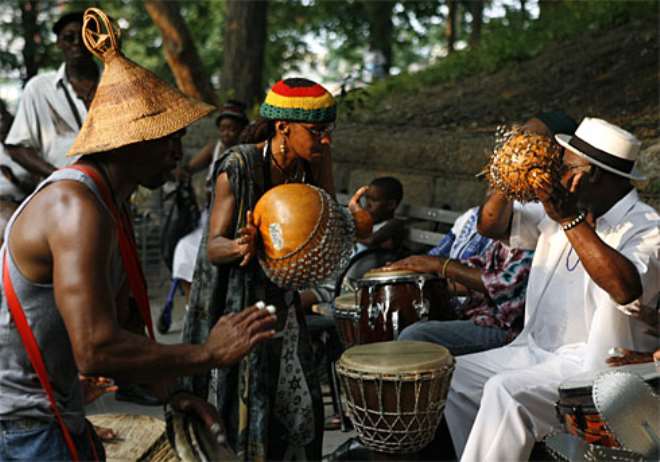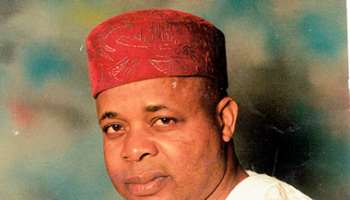Nollywood: Who’s marginalising the Igbos?
I imagine there were two or more instinctive reactions to this headline. There are those who may have perked up on seeing the headline and who may have proceeded to “balance properly” to read what they think is going to corroborate what they've been saying all along about how the Igbos are being marginalised in Nigeria. Then there would be those who'd do a quick backtrack and can't turn the page fast enough, perhaps muttering words along these lines: “Who do these people think they are, sef? Always shouting marginalisation!'
Of course, all other reactions would fall somewhere in-between but none of the reactions would be wrong. There's a lot to be said for the way the Igbos have suffered, yes. A lot of that can be ascribed to “other people” while largely absolving the Igbos of all responsibility as a result of many reasons based on sound psychological evaluations.
Nonetheless, when it comes to Nollywood, none of that holds water. This is the one instance the Igbos cannot blame “other people” for their problems
I was home for the Easter holidays and noticed what may have become stale news – two new dedicated Africa Magic channels: Hausa and Yoruba. It became instantly obvious that there was no Africa Magic Igbo channel. The cynical or plain mischievous may claim that what we've touted as Nollywood is actually Igbo films in English and as such, the premier Africa Magic fills that role. That's an argument I'm only too happy to get into, but not today.
The point I'm interested in today is the near absence of Igbo films – which to spell it out again – means films in Igbo language with English subtitles. The fact that there are no films shot in Igbo is not a new discovery or sudden revelation inspired by a T.B Joshua prophesy. If I haven't previously shown sufficient concern, it may just be because my Igbo isn't that good anyhow. But who's to say how well Igbo films would have fared? In any case, the absence of Igbo films has now assumed more significance because of the creation of the two Africa Magic channels in two Nigerian languages and its importance goes beyond just the need to fill the Wazobia quota. Not that we should expect the owners of Africa Magic to pander to our ethnic arrangements.
The absence of Igbo films is actually doubly curious, considering that the film, Living in Bondage, which is often cited as the beginning of what's now called Nollywood, is an Igbo film. That's one fact even I forget. So what happened? How then did Igbo disappear from films? Expectedly, there are varied opinions on this subject.
Some say the Igbo film makers placed commercial and profit-making considerations over everything else by focusing on films shot in English in order to appeal to a larger audience. I don't know how that adds up and if there are necessarily fewer people who would have bought Igbo films. And how does making more films in English detract from having (even if fewer) Igbo films? If we agree with the well circulated opinion of folkloric proportions about the Igbos love for money, wouldn't they still make even more money by producing films in more than one language?
I can't even begin to pretend that I have answers. But the time has come to take another look at what we are selling. That may just be what the film industry – from Nollywood, to Kanywood to Yoruwood – needs.
Latest News
-
 Singer, Davido Discloses Favourite Artistes In Ter
Singer, Davido Discloses Favourite Artistes In Ter -
 “Marry Yourselves" —- Uche Ogbodo Advises Nollywoo
“Marry Yourselves" —- Uche Ogbodo Advises Nollywoo -
 Zubby Michael Finally Breaks Silence, Mourns Late
Zubby Michael Finally Breaks Silence, Mourns Late -
 Israel. DMW Disagrees With Doctor’s Claim
Israel. DMW Disagrees With Doctor’s Claim -
 Davido Reveals Afrofusion As His Genre Of Music
Davido Reveals Afrofusion As His Genre Of Music -
 D’banj Tries To Make Peace With Ex Business Partne
D’banj Tries To Make Peace With Ex Business Partne -
 “He Was The First Artiste That Showed Me Help When
“He Was The First Artiste That Showed Me Help When -
 “The Way My Parents Were Portrayed Wasn't The Best
“The Way My Parents Were Portrayed Wasn't The Best -
 Davido Gives Brutal Reply To Producer's Allegation
Davido Gives Brutal Reply To Producer's Allegation -
 Nollywood Industry Mourns Death Of Veteran Actor,
Nollywood Industry Mourns Death Of Veteran Actor,














